Open on Evenings & Holidays! Extended And Flexible Hours!
* DNA Testing for Immigration
* Paternity Testing
* Deceased Paternity
* Forensic Testing & Much More!
Open on Evenings & Holidays! Extended And Flexible Hours!
* DNA Testing for Immigration
* Paternity Testing
* Deceased Paternity
* Forensic Testing & Much More!
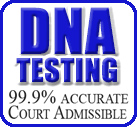
AB DNA Testing Services
Phone: 718-701-0292
We offer New York’s BEST AND MOST AFFORDABLE DNA TESTING with a full range of services to verify family relationships.
We specialize in the following types of DNA tests:
• Paternity • Maternity • Grand-parenting • Sibling Relationship • Biological Relationship Studies • Twin Studies • Deceased Paternity • Forensic Testing • Child Identity Testing • Family Tree and Genealogy Testing
* EVEN LOWER PRICE THAN HOME DNA KITS.
* NO HIDDEN COSTS – Collection kits, photography, and fingerprinting all included.
* 99.9% (OR GREATER) ACCURACY.
* FINAL RESULTS ARE PRESENTED IN A NOTARIZED DOCUMENT IN A CLEAR AND CONCISE FORM.
* ALL RESULTS ARE COURT ADMISSIBLE.
* OVER 15 YEARS EXPERIENCE.
* NO REFERRALS NECESSARY!
* FAST AND PAINLESS SAMPLE COLLECTIONS, USING BUCCAL (Mouth) SWABS.
* SPANISH, PORTUGUESE, FRENCH AND CREOLE SPOKEN.
* PLEASE SEE TRANSLATIONS OF OUR SERVICES IN: SPANISH, BENGALI, URDU, CHINESE AND NEPALESE!
Located In Woodside Queens, easily reachable from all boroughs (Queens, Manhattan, Brooklyn, Bronx and Staten Island), Westchester, Nassau and Suffolk.
We can also schedule DNA tests at our network of collection sites throughout New York city.
Call us. We have found that in many cases, our personalized service can overturn your denial. We will call the passport office or immigration dept. for you and plead your case over phone verbally.
90% of time they will revoke your denial, as long as you get the required information to them quickly.
AB DNA TESTING SERVICES
AB DNA Testing Services © |
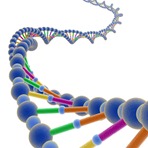 |
718-701-0292 We are open on evenings & holidays! |
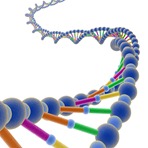 |
Legal Paternity Test: $349
NYS compliant testing only. NO HIDDEN COSTS OR EXTRA FEES.
We do not provide prenatal DNA testing in-house. If you need prenatal testing, we can refer you to a provider we’ve worked with previously:
Prenatal DNA Testing NYC.
AB DNA Testing Services offers a broad range of DNA testing options using certified, accredited laboratories and verified collection procedures.
Court admissible DNA is the result that you can present in court as a form of evidence. Juries and lawyers consider DNA to be a reliable source of evidence. Under certain circumstances, this type of evidence can be undeniable and an integral part of a case. Court admissible DNA should meet certain legal standards and procedures, as the court will not accept a test if it doesn’t fulfill specific legal requirements. Matters like parental dispute, child custody, and immigration often require court admissible DNA tests. You may also need court admissible DNA in more extreme matters like violent crimes.
DNA is a molecule that makes up the chromosome cells in our body. You can consider it as a building block for all living beings. It consists of nucleotides that bind together to form a genetic code, which is an essential part of who you who you are. What’s more, the DNA’s binding makes a double helix, ladder like structure. The genetic codes follow a similar pattern, which helps scientists identify certain characteristics, traits, physical appearance, and medical conditions of a person. Furthermore, DNA molecules bind with each other in the form of a strand.
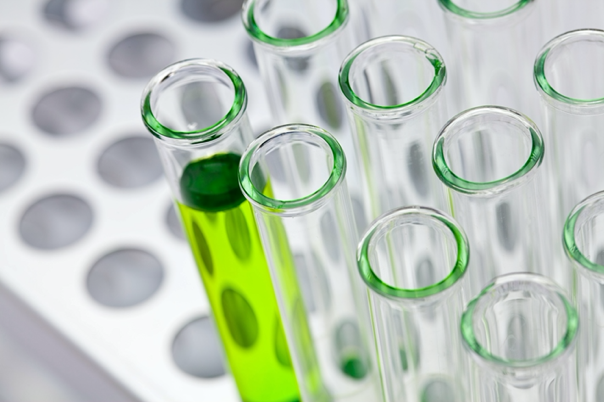
DNA evidence can be immensely helpful in court. In order to test DNA, you need a sample, which can be obtained quite easily . A sample can come from any part of the body. When it comes to crimes, even a criminal’s fingerprints can leave genetic information for forensic specialists to decode. In other cases that involve child custody or immigration, you can collect reliable samples. A doctor normally extracts cheek cells from a swab for accurate results.
The use of DNA in profiling individuals did not exist until the mid 1980’s. An English Scientist, Alec Jeffrey discovered that certain areas in the DNA molecule strand contain patterns that seem to repeat quite often. These repetitions are distinctive to each individual, except for identical twins who share the exact same DNA. Dr Jeffrey was then able to discover a test that measures the variations of these repeated patterns in order to identify individuals. This was the first technique that compared samples of the DNA in order to profile individuals. People knew it as Restriction Fragment Length Polymorphism. (RFLP)
This method is very accurate and reliable, but it requires a large amount of DNA samples. People now use Polymerase Chain Reaction method. (PCR), as it allows them requires a very small amount of DNA.
Many circumstances can affect the admissibility of DNA evidence in court. The courts demands immense accuracy when it comes to DNA methods. They can also ask for more than one method to ensure the DNA evidence is accurate. In some cases, judges may demand a scientific approach in order to mitigate the varying degrees of results. Mistakes like contamination, errors in the chain of custody, transport and storage can ultimately hamper the integrity of the DNA results. It could lead to the court dismissing DNA evidence because of its vagueness.
Maintaining admissibility of DNA evidence includes the following steps.
It’s very important to not tamper with the DNA evidence. Consider keeping it in a safe and secure place so it has no contact with any external sources that could contaminate it. This will make sure it comes in handy during trials. .
Documentation of the DNA evidence is very important. The lesser the people handle the evidence the better. A long chain of custody handling DNA evidence could lead to intentional or unintentional tampering. Therefore, it would be best to ensure that only a select few people are responsible for handling the evidence.
Many factors can make a paternity test court admissible. For example in cases of child custody, if the child gets really sick. Their treatment can require paternal DNA tests in order to find out the ethnic heritance of the parents, since this information can be crucial for treatment.
Other cases may include immigration processes where a person needs to travel and their parents already reside in the desired country. The court may require you to provide a DNA test if you wish to travel on an invitation. It will prove whether there is a biological relationship between you and the other party. The immigration office accepts DNA tests form labs accredited by the AABB.
The admissibility of DNA depends on whether you got the test done by an AABB accredited lab. If you are looking to get a 100% authentic DNA test that promises 99.9% accuracy, contact us at 718-701-0292, or visit our website at AB DNA testing lab.
What is in a DNA testing lab? A scientist’s laboratory equipment is their toolset. If they do not have that equipment, they cannot perform DNA testing. The choice of testing equipment depends on the laboratory and the method they use for testing. Different laboratories may use different techniques. Some equipment is compulsory for a laboratory, and some are not so important, so they have alternatives. The most common items that almost every laboratory has:
Some specialized laboratories may also include cell culture, autoclave, or tissue culture, PCR machine or thermocycler, spectrophotometer, etc. However, if a laboratory conducts advanced research, they will have:
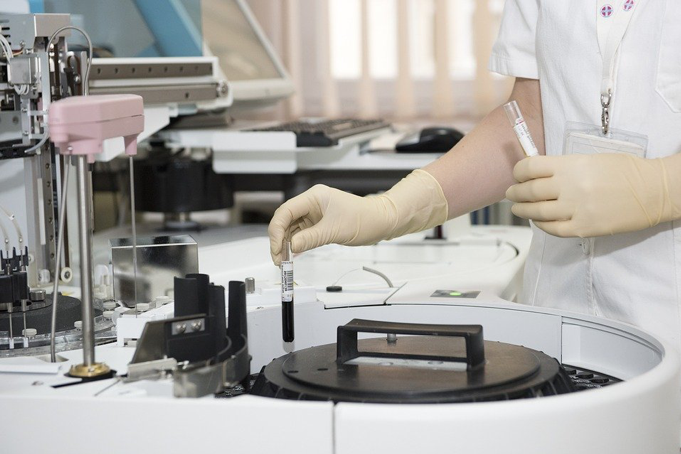
(Source)
When undergoing DNA testing for any reason, you may be confused about the procedure of how laboratory professionals conduct the testing. DNA testing is a scientific technique. To perform DNA testing, professionals need specialized machinery and a laboratory. Below, you will learn about the DNA testing process:
The sample can be your hair or any bodily fluid, as these elements contain DNA. Usually, laboratories gather testing samples through a swab by inserting it inside the mouth to the cheek. This method is the buccal smear and is the least invasive and common method for collecting samples.
In this process, the professionals will break down the cell membrane from the sample. They do so by adding an enzyme in the solution containing DNA samples.
To separate the DNA, professionals use different ways. Electrophoresis is the most common process. In this method, molecules will sort through the electric field. DNA has a molecular structure, so it will separate from the sample.
To make copies of the DNA, professionals rely on the PCR process. After that, they use these copies to test for genetic markers.
In this step, they identify genetic markers from the DNA to discover the relationship. DNA has thousands of genetic markers that we recognize. However, only 16 to 21 genetic markers can report the relationship to prove genetic relationships.
After obtaining the markers, professionals match it with the unknown DNA samples. This will highlight that the DNA donor and the unknown person are the same or not. For paternity DNA testing, only half of the DNA will match the mother. The remaining half comes from the father.
So after receiving the samples, technicians will identify the proteins, chromosomes, and DNA according to the suspect’s disorders. After the testing is complete, they will share the result with the genetic counselor, doctor or the immigration office in reference to the person. They can also send the results directly to the person on request.
For the screening tests of the newborn, doctors take a small sample of the blood by pricking the heel of the baby. However, in this test, the lab only shares the results with the parents if it is positive. Once the test is positive, professionals will perform various tests to find out any genetic disorder that the newborn may carry.
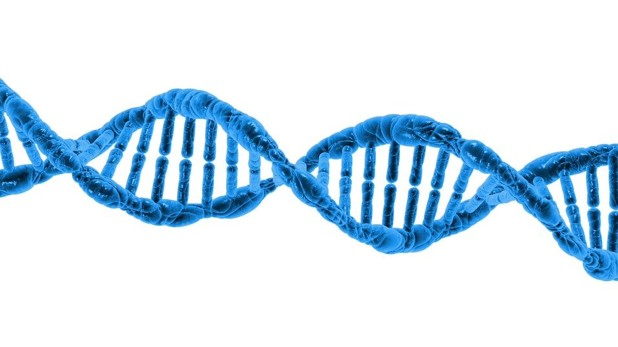
(Source)
If you are the person taking the test, you need to understand the DNA testing process, the limitations and benefits of the testing, and the consequences that may occur after receiving the results. The process of educating a person taking a DNA test and asking for their permission is informed consent.
People need DNA testing for various purposes, such as half or full sibling test, maternity or paternity testing, or to prove their relationship through immigration DNA testing. Regardless, our professional and friendly staff can help every step of the process. Our experts can also support you in a situation where you are born abroad and do not have any citizenship.
We follow an easy and quick sample-collecting process. You will receive the results of your test within three to four days. At AB DNA Testing, we keep good care about timeliness, accuracy, and confidentiality. By trusting us with your DNA testing for immigration, you can relax about the results as we are one of the best DNA testing services.
If you are looking for DNA testing services, contact us at 718-701-0292. You can also visit our website to learn more about our DNA testing services, methods, and location. Our professional and expert technicians are available to assist you through the entire process after a thorough consultation.